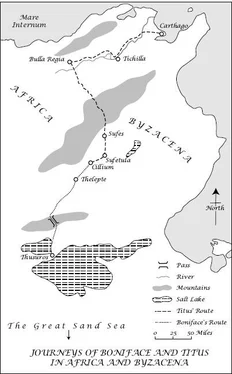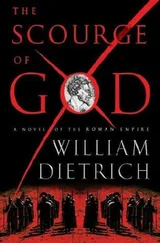Ross Laidlaw - Attila:The Scourge of God
Здесь есть возможность читать онлайн «Ross Laidlaw - Attila:The Scourge of God» весь текст электронной книги совершенно бесплатно (целиком полную версию без сокращений). В некоторых случаях можно слушать аудио, скачать через торрент в формате fb2 и присутствует краткое содержание. Жанр: Исторические приключения, на английском языке. Описание произведения, (предисловие) а так же отзывы посетителей доступны на портале библиотеки ЛибКат.
- Название:Attila:The Scourge of God
- Автор:
- Жанр:
- Год:неизвестен
- ISBN:нет данных
- Рейтинг книги:5 / 5. Голосов: 1
-
Избранное:Добавить в избранное
- Отзывы:
-
Ваша оценка:
- 100
- 1
- 2
- 3
- 4
- 5
Attila:The Scourge of God: краткое содержание, описание и аннотация
Предлагаем к чтению аннотацию, описание, краткое содержание или предисловие (зависит от того, что написал сам автор книги «Attila:The Scourge of God»). Если вы не нашли необходимую информацию о книге — напишите в комментариях, мы постараемся отыскать её.
Attila:The Scourge of God — читать онлайн бесплатно полную книгу (весь текст) целиком
Ниже представлен текст книги, разбитый по страницам. Система сохранения места последней прочитанной страницы, позволяет с удобством читать онлайн бесплатно книгу «Attila:The Scourge of God», без необходимости каждый раз заново искать на чём Вы остановились. Поставьте закладку, и сможете в любой момент перейти на страницу, на которой закончили чтение.
Интервал:
Закладка:
75 ‘Gaius Valerius acquired an unofficial agnomen ’. The Romans were sometimes referred to as ‘the people with three names’. From an early period they adopted the Sabine practice of using a praenomen or personal name (chosen from an extremely limited stock — Titus, Quintus, Marcus, etc., usually abbreviated to T., Q., M., etc.) — followed by a gentile or tribal name ending in ‘ius’, such as Julius, Claudius, or Tullius. This, in the case of patricians, was followed by a family name or cognomen , often originally deriving from a personal peculiarity: Caesar (having a full head of hair), Cicero, Naso, etc. Occasionally, as a mark of distinction, a second cognomen or honorific agnomen such as ‘Africanus’ or ‘Germanicus’ was added. By the fifth century, the system had loosened up a little, to the extent of widening the choice of personal names, and occasionally the affecting of more than one family name. In general, however, naming practice remained remarkably conservative and consistent throughout the whole Roman period. Incidentally the style ‘Julius Caesar’, referring to Caius Julius Caesar, is a modern adoption and wouldn’t have been used by the Romans themselves. They would have called him Caius (interchangeable with Gaius), or Caesar, or Caius Julius, or Caius Caesar; never by a combination of the gentile and family names.
76 ‘the Altar of Victory removed from the Senate’. This was bitterly opposed by Symmachus, city prefect of Rome, consul, orator, man of letters, and distinguished member of one of the great influential Roman families, the Symmachi.
76 ‘the pursuit of otium ’. Leisured scholarship was the preserve of the senatorial aristocracy and country gentlemen in Rome and the Latin provinces, as well as in the Eastern Empire. This created a remarkably uniform, if sterile, classical culture which survived in the Western Empire right up to the end in 476, and even beyond.
77 ‘Many of their leaders copy Roman dress and manners’. Sidonius Apollinaris, who visited the Visigoth court of Theoderic II, draws a flattering pen-portrait of the monarch, and describes Gallo-Roman aristocrats being sumptuously entertained by Visigoth courtiers displaying the courteous manners and wit of Roman gentlemen.
Chapter 11
81 ‘like a latter-day Cincinnatus’. In Rome’s early days, the exconsul Cincinnatus was summoned from the plough to lead Rome against the Aequians; that tribe defeated, he returned to ploughing his farm.
Chapter 13
91 ‘Ariminum’s five-spanned bridge. . triumphal arch’. The bridge is still in use today, and the arch spans a main road into Rimini.
Chapter 14
101 ‘ Ad Kalendas Graecas ’. The Roman Kalends was the usual day for paying rents, accounts, etc. But as the Greeks used a different mode of reckoning, a postponement of payment ‘to the Greek Kalends’ simply meant a refusal to pay altogether. Popularized by Emperor Augustus, the expression became a synonym for ‘never’.
Chapter 15
107 ‘his son-in-law Sebastian’. ‘the virtuous and faithful Sebastian’ (Gibbon) was subsequently hounded implacably by the agents of Aetius, ‘from one kingdom to another, till he perished miserably in the service of the Vandals’, a Catholic martyr of Arian persecution.
109 ‘he will be outlawed’. After the Battle of the Fifth Milestone, Aetius and the remnants of his force managed to retreat to Gaul. Defeated, disgraced, declared a rebel by Placidia, he then withdrew to a fortified estate inherited from his father, where he attempted to hold out. However, besieged by imperial troops and nearly falling victim to a murder attempt by Sebastian, Aetius soon realized that his position was untenable. Accompanied by a few loyal followers, he slipped away in secret and escaped to Pannonia, to be granted sanctuary by his faithful friends the Huns.
Chapter 17
119 ‘the sword had been gifted to him by a herdsman’. The full story is recounted by Priscus of Panium in his Byzantine History , which contains a graphic account of his visit to the court of Attila.
123 ‘both an Aristotle and an Arrian to Attila’s Alexander’. Aristotle was tutor to the young Alexander, Arrian (second century AD) his biographer.
124 ‘even copied by the imperial cavalry of China’. This seems to have occurred c . 300 BC. Gradually tunic and trousers spread among the Chinese population, displacing traditional flowing robes and tight shoes to become the Chinese national dress. Today, this ubiquitous costume is giving ground to Western clothing, itself a throwback to Persian dress, introduced into Britain by Charles II: a long, open-fronted jacket worn over waistcoat and breeches — the embryonic three-piece suit.
125 ‘if Ptolemy is correct’. The foremost of classical geographers, Ptolemy flourished in the mid-second century AD. His Geographia , a standard work of reference up to the Great Discoveries of the fifteenth century, shows on its great world map lines of latitude and longitude (calculated from Ferro in the Canaries), Europe and the Near East reasonably accurately, and — distorted though recognizable — the main features of Asia and Africa as they were known in his day.
127 ‘a drink called chai ’. Tea is thought to have been introduced to China from India before 500. ‘Brick tea’, steamed and compressed tea dust, is only one-sixth the bulk of loose tea, making it an ideal article of trade.
127 ‘rhinoceros and elephant’. That is, woolly rhinoceros and mammoth. John Ledyard in his 1787-8 journal, A Journey through Russia and Siberia , noted seeing large quantities of such bones in the vicinity of Irkutsk. Significant amounts of commercial ivory have been recovered from mammoth tusks.
128 ‘still permitted to discuss all matters freely’. But not for much longer. Within a few generations they were to be closed by order of Justinian, one symbol of the winding up of classical culture.
Chapter 18
138 ‘between Scylla and Charybdis’. In Homeric legend, these were two sea-monsters who dwelt on either side of a narrow strait, constituting a deadly peril to passing seafarers. In modern parlance, ‘between Scylla and Charybdis’ would translate as ‘between a rock and a hard place’.
Chapter 22
165 ‘one of those German legends’. The Burgundian campaign, of which this was the prelude, was in fact to become the subject of one such saga, the Nibelungenlied , which conflates several separate events, and even features Attila.
Chapter 23
169 ‘an Aurelian to wipe out the Alamanni sweeping into Italia’. Aurelian, huge in character as well as physique, was instrumental, along with his predecessor Claudius II and his successor Diocletian, in rehabilitating (in a bleak and totalitarian fashion) the Roman Empire after its near-eclipse in the third century. Rome is still (mostly) surrounded by the defensive walls he built against incursions by the Alamanni.
Chapter 25
194 ‘a race of uncivilized allies’. At the time Sidonius was writing, the Visigoths were attacking Arvernum (Clermont-Ferrand in Auvergne) of which Sidonius, son-in-law of Avitus, had become bishop.
196 ‘the milestone marking the centre of Gaul’. It has since been moved a few miles to the town of Bruere-Allichamps, south of Bourges, to mark the supposed geographical centre of France.
197 ‘Revessium’. Also known as Ruessio or Ruessium, it was the capital of the Vellavi tribe, allies of Vercingetorix against Julius Caesar.
197 ‘the fierce and volatile Arverni’. Under their famous leader Vercingetorix, they inflicted on Julius Caesar his single reverse at Gergovia in 52 BC.
Читать дальшеИнтервал:
Закладка:
Похожие книги на «Attila:The Scourge of God»
Представляем Вашему вниманию похожие книги на «Attila:The Scourge of God» списком для выбора. Мы отобрали схожую по названию и смыслу литературу в надежде предоставить читателям больше вариантов отыскать новые, интересные, ещё непрочитанные произведения.
Обсуждение, отзывы о книге «Attila:The Scourge of God» и просто собственные мнения читателей. Оставьте ваши комментарии, напишите, что Вы думаете о произведении, его смысле или главных героях. Укажите что конкретно понравилось, а что нет, и почему Вы так считаете.












